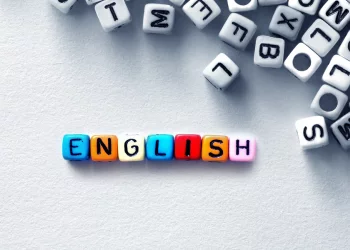
Below, you can find a more detailed description of the writing sections in both exams and the criteria markers apply when grading the tests.
Check out: What Do GMAT and GRE Essays Assess?
What are the writing tasks of the IELTS Academic test?
The IELTS writing component has two tasks, which take a total of 60 minutes to complete. The first task requires you to use your own words to describe, summarise or explain the information you see in a graph, table, chart or diagram. The second task asks you to submit a written response to a problem or a point of view.
Here is a description of the two tasks in more detail:
- Task 1 (20 minutes to complete)
The first writing tasks in the IELTS Academic exam assess your ability to spot the most important and relevant information and trends in a graph, chart, table, or diagram, and to provide a structured overview of that information in your own words.
Test takers should write in an academic style or semi-formal/neutral styles and include the most important and the most relevant points. They shouldn’t try to include all the details - some minor points may be left out.
The response to the first writing task should be at least 150 words long. If it’s shorter, the test taker will be penalised. There is no upper limit for the first task, but students must be aware that spending too much time on the first task will eat into their time for the second task, which contributes twice as much to the writing score in the IELTS exam.
Speaking of penalties, test takers should also know that they will be penalised if the response is off-topic or the text is not full and connected due to the inclusion of elements such as bullet points.
- Task 2 (40 minutes to complete)
This task assesses your ability to present a well-structured argument, backing it with examples and evidence in clear, correct language.
Test takers are presented with a topic and asked to subject it to a “discursive consideration”. In other words, they need to justify their opinion by discussing arguments, providing examples, proposing possible solutions, and supporting their position.
Understanding the task here is vital. Test takers should provide a response relevant to the exact topic in the task. For example, if the topic is a particular aspect of sports, they should focus on this aspect in their response. They should not simply write about sports in general.
Test takers are asked to write at least 250 words. Any answer shorter than that will have a negative impact on the score.
Bear in mind that Task 2 contributes twice as much to the final writing score as Task 1. Cohesion and coherence are very important. The response should not contain bullet points or anything else that is not a full, connected text.
Check out: 11 Steps to Achieving a High IELTS Score
How are the IELTS writing tasks graded?
IELTS results are reported on a 9-band scale. Each component is graded – Listening, Reading, Writing and Speaking. The average of these separate scores is then calculated to produce an overall band score.
In the writing section, each writing task is assessed independently by trained IELTS markers. Their assessment is based on the following criteria:
- Task Achievement (for Task 1), Task Response (for Task 2)
- Coherence and Cohesion
- Lexical Resource
- Grammatical Range and Accuracy
The criteria have equal weight.
What are the writing tasks of TOEFL iBT ?
The TOEFL has two writing tasks, an Integrated Writing Task and an Independent Writing Task. They take a total of 50 minutes to complete. The Integrated Writing Task comes first. It involves some listening, therefore test takers are wearing headphones. When the Integrated Writing Task is over, test takers may take their headphones off to work on the Independent Writing Task.
Check out: TOEFL Writing Tips
Here are some more details about the two tasks.
- Integrated Writing Task (20 minutes to complete)
In this task, test takers are asked to read a short text of about 230–300 words on an academic topic. After three minutes, the reading passage disappears from the screen and students are asked to hear a lecture.
The lecture consists of a speaker discussing the same topic from a different perspective for two minutes. The listening passage is about 230–300 words long. The listening passage provides additional information that relates to the reading passage. Students may take notes on the listening passage as well.
Once the lecture is over, the text reappears so test takers can use it for reference while they are writing.
In connected, full-text, students are required to write a summary of important points made in the listening passage and explain how these relate to the key points of the reading passage.
The response should be about 150–225 words. There is no penalty for longer responses, but responses shorter than 150 words will have a negative impact on the score.
- Independent Writing (30 minutes to complete)
Here, test takers are required to state and support their opinion on an issue.
Typical essay questions begin with statements such as:
– Do you agree or disagree with the following statement? Use reasons and specific details to support your answer.
or
– Some people believe [X]. Other people believe [Y]. Which of these two positions do you prefer/agree with? Give reasons and specific details.
The essay should be at least 300 words long.
How are the TOEFL writing tasks graded?
The responses are rated by four markers — two human markers for the integrated task and by one human marker and one e-marker (a computer programme) for the independent task. The essays are rated on a scale of zero to five and then the average score for the two writing tasks is converted to a scaled score of 0 to 30.
The response to the Integrated Writing Task is scored according to the following criteria:
- organisation
- appropriate and precise use of grammar
- vocabulary
- completeness and accuracy of the content
The response to the Independent Writing Task is scored on the following criteria:
- development
- organisation
- appropriate and precise use of grammar
- vocabulary
It doesn’t matter whether you agree or disagree with the topic—the markers are trained to accept all varieties of opinions.
You may read various opinions on which writing section is harder, that of the TOEFL or that of the IELTS. But instead of wasting time weighing the pros and cons of the two writing sections, focus on improving your ability to express yourself effectively in written form. If will not only help you pass either of the exams with flying colours, but also benefit your academic and professional life. The effort you put in to prepare well for the writing tasks now will pay off for the rest of your life.


Comments